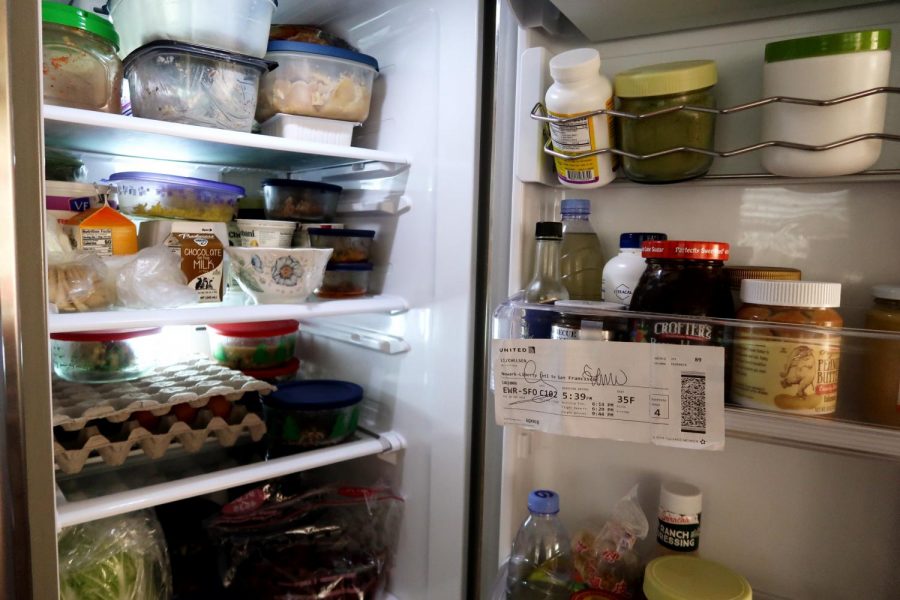With the announcement a week prior to spring break that NYU’s Washington Square Park campus would begin remote classes due to the continuous rise of coronavirus cases in New York City, students were forced to adapt their plans.
Many international students opted to stay in NYU housing, as overseas travel was discouraged and whether the semester would eventually resume in-person at the NYU Washington Square Park campus initially remained unclear. With the burgeoning threat of the coronavirus, students who stayed in NYU housing began to prepare.
“I went grocery shopping and bought more than I usually do, a ridiculous amount of food,” Steinhardt first-year Yvonne Zhang said. “It was an excessive amount of food that could last me for half a year, but I was forced to eat it in five days.”
The sudden changes brought forth by the escalation of the coronavirus in New York City throughout the spring break week forced students who planned to stay in housing to react quickly.
“I bought a ticket after we were told we would be kicked out [of housing] on March 22, and later had to buy another ticket because they moved the date ahead to March 18,” Zhang said. “I packed my stuff for days and also helped three friends who were not in town to pack … I think I can speak for myself and also lots of international students regarding all the losses in finances as we have to fly back home because the dorm is not available anymore and that news came in such a short period.”
Some students had spring breaks revolving around an NYU-affiliated program. CAS first-year, Rachel Fadem, had signed up for a trip with the Bronfman Center for Jewish Student Life to go to an urban farm in Berkeley, California and learn about sustainability, being good to the earth and mindfulness, all within the realms of Jewish practice. Though the trip’s cancellation was disappointing, Fadem has been able to use her now-free time to channel some of her passions.
“I’ve been making a lot of jewelry,” Fadem said. “It’s something that I used to do when I got really anxious or depressed and now it’s a fun hobby and business. It’s nice to be able to put all of my energy into a creative outlet such as making jewelry. I’m also writing music and playing music.”
Students who are able to be at home have even found little things to look forward to despite the unusual circumstances.
“I just bought this amazing vegan cake cookbook and I’ve been waiting for it to arrive for the past week,” Gallatin sophomore Ella Rene said. “When it gets here I have a day planned to bake like 4 cakes and drop some off to all of my friends’ houses — I’ll leave them at the doorstep and wave from my car. That’s honestly what I’m most excited about right now.”
That being said, one activity students often expect to come home to is spending time with their family and friends from their hometown. Because many cities are urging individuals to exercise social distancing to minimize potential exposure or spread of the coronavirus, these gatherings have been impeded.
“The only activities that have really been affected for me have just been being able to hang out with my friends from home,” Rene said. “We usually spend days together over break. I’m from D.C. so we sometimes do picnics by the monuments, or bike rides downtown, going to the movies in Georgetown. It’s weird because I haven’t seen them at all this break. My family sometimes travels to see family over break, so obviously that’s been affected, which is upsetting.”
And as students are no longer living on campus or attending classes in person, keeping in touch with peers from NYU has become an added challenge.
“Being back home means that I won’t be able to see many of my friends as I am away from my NYU friends,” Fadem said. “I’m trying to utilize facetime to talk to them.”
Still, students who were able to return to stable homes are grateful to have the support they do. But they recognize the universal stress of the pandemic on students, regardless of whether their spring break was or was not affected.
“I think that it’s really hard to stay positive during a time like this. Obviously I’m in an extremely privileged position to be able to stay home and not worry about my housing situation, or whether I’ll be able to have enough food on my plate,” Rene said. “But I do think it’s important that everyone takes the time to take care of themselves and the people they care about if they have the ability to. Everyone is kind of grieving in their own way, and I think that putting that energy into something, no matter what it is, is what will help us get through this.”
A version of this article appeared in the Monday, Mar. 23, 2020 print edition. Email Divya Nelakonda at [email protected].


























































































































































